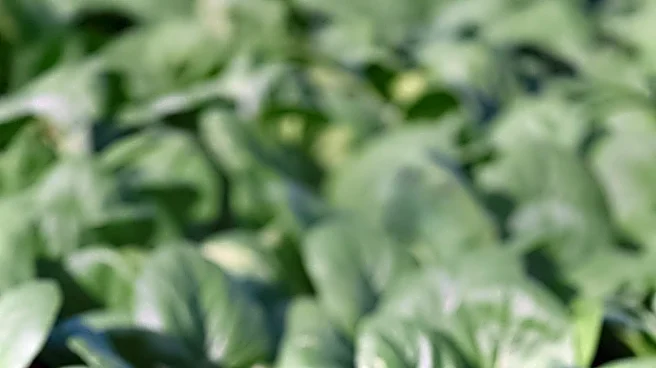What is the story about?
What's Happening?
Modern Farmer has outlined the advantages of planting soil-feeding cover crops in September to enhance soil health and productivity. Cover crops such as alfalfa, field peas, clovers, and brassicas are recommended for their ability to fix nitrogen, improve soil structure, and attract beneficial insects. These crops protect soil from erosion during winter and increase biodiversity, which can limit pestilence. The article emphasizes the importance of selecting cover crops based on soil needs and farm goals, and discusses the benefits of using native plants for regenerative farming practices.
Why It's Important?
Planting cover crops is a sustainable agricultural practice that can significantly improve soil health, leading to better crop yields and reduced need for chemical fertilizers. By enhancing soil structure and nutrient availability, farmers can increase the resilience of their land against environmental stresses such as drought. The promotion of biodiversity through cover crops also supports ecological balance and can reduce reliance on pesticides. These practices contribute to long-term agricultural sustainability and can help farmers adapt to changing climate conditions.
What's Next?
Farmers are encouraged to conduct soil tests to determine specific needs and plan for the termination of cover crops. As awareness of sustainable practices grows, more farmers may adopt cover cropping as part of their regular farming operations. Continued research and education on the benefits of cover crops will support their integration into diverse farming systems.















